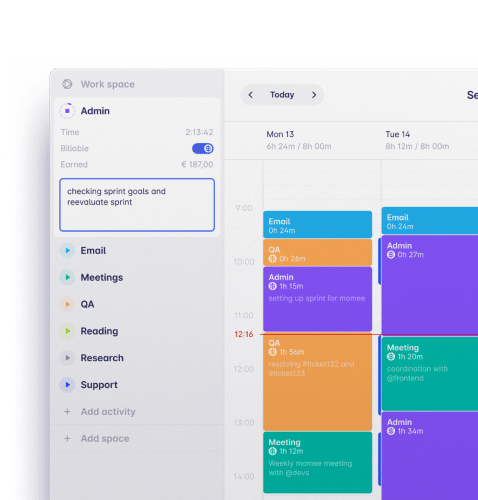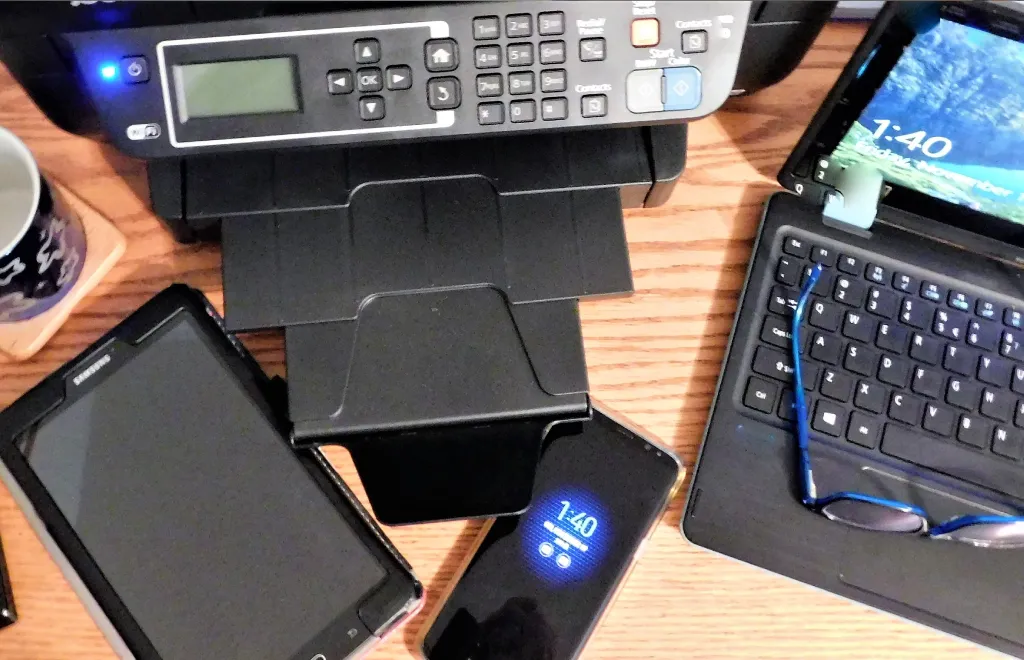Losing Track of Time: Why Does it Happen and How to Stop it
Imagine yourself after a busy day, with a long to-do list that you were barely able to tackle. Or during a monotonous period, not being sure which day of the week you’re in.
Losing track of time is the state of becoming unaware of the passage of time, often caused by being fully absorbed or in an activity or task.
It’s a common occurrence that happens to many people. But, is the sensation of losing track of time merely a consequence of procrastination, or is there a scientific explanation behind it?

Free eBook: Reclaim control of your time
Get your free copy of the eBook on time management and discover how to leverage the power of time tracking
Why do I feel like I am losing track of time?
There are numerous reasons why you may feel like you are losing track of time, including:
- being fully absorbed in a task
- lacking external time cues (for that, try an online time tracker)
- having poor time management skills (get a free copy of the eBook on time management)
- being mentally preoccupied or distracted,
- following a monotonous routine,
- feeling high levels of stress or pressure,
- lacking motivation or interest in the task,
- engaging in activities with limited feedback on the passage of time.
In the post-COVID times, there are two other explanations related to this phenomenon: one is related to covid and its psychological effects on people and the other one is related to health conditions.
Let’s see how these factors may explain why you’re losing track of time.
Psychological effects of Covid-19
As we said, there is a psychological explanation for losing track of days, and part of it has to do with the consequences of the Covid-19 pandemic
The Covid-19 pandemic and its imposed lockdowns mandated that most of the workforce go remote.
There was no time for people who had the habit of commuting to an office every day, to adjust to this new reality. Even though you were at home, you had no place to go due to all businesses being closed, but work was there.
Billions of people saw the lines between work time and family/home time merge, into one continuous routine.
We should add to this the anxiety over the pandemic, the fear of getting infected, and having no outside activities to distract us. Many ended up working longer hours than in an office, having removed the commute factor from their daily lives.
Even at a time when many companies opt for a hybrid work model, returning to a structured timetable is a struggle. COVID-19 truly altered billions of people’s notion of time.
It’s important to note that, losing track of time is not necessarily a bad thing. Being focused on a task and entering what the specialists refer to as a flow state, can turn into a productive and effective way of working.
However, a good thing can turn into a bad habit. If the flow state causes you to stop completing other tasks or miss important events, you have to know how to control it (we will address this in our tips).
Health conditions
Losing track of time can also be a symptom of a more serious problem. It can be related to mental health issues, such as depression, and also to ADHD (Attention Deficit Hyperactivity Disorder), which can sometimes be tricky to diagnose in adults.
This distorted time perception is called dyschronometria and is considered a medical condition.
While this condition can be related to dementia or Alzheimer’s, right now most of the world is de-transitioning to the effects of the lockdowns on our routines. It’s possible to revert them and regain control over our everyday lives.

How an ADHD coach uses Timeular to maintain focus and prevent burnout
11 Tips to stop losing track of time at work
1. Visit a doctor
This tip is the most obvious and the one that’s “mandatory”.
As we’ve seen, some health issues may explain why you’re losing track of your time. So, to have professional feedback, we strongly advise you to see a doctor.
If you’ve already visited a doctor, we have other suggestions that may help you.
2. Creating a routine and sticking to it
If a healthier, or at least, more diverse, routine was lost during the lockdown periods, it can help bring those pre-pandemic habits back.
Even if you’re still working from home, try and create routines and rituals associated with each weekday. Here are a few suggestions that will help keep track of time:
- Wake up and go to bed at the same time, every day of the week;
- If you work in a hybrid mode, try to go to the office on the same days every week;
- Take your breaks and lunchtime at the same time, every day;
- Keep a consistent morning routine before work (exercise, breakfast, shower, etc)
- Keep the same consistent routine in the afternoons, if you prefer;
- When working from home, tidy your desk at the end of the day and physically put things away. If possible, work and relax in different spaces.
3. Using time management strategies
Many productivity strategies can help you increase focus and time organization.
Losing track of time, especially during crucial work moments can be controlled with some of the most known strategies, for example, time blocking. If you’re not familiar with this method, you might be interested to find out what time block is and how to do it.
Another popular strategy is the Pomodoro technique, which consists of working in 25-minute blocks with breaks in between.
Time management tools are very useful and helpful in applying these productivity strategies.
Read also: The best Pomodoro technique alternatives

Stop losing track of time. Track it with Timeular
4. Reducing screen time
Excess screen time is not a novel concept these days. The work days are followed by evenings of Netflix binges, Instagram scrolling, or 24-hour news watching.
The excess of screen time affects our sleeping patterns (a blue light consequence), which contributes to our circadian rhythm being out of sorts, as day and night seem to fuse.
The circadian rhythm is a natural process that regulates our sleep-wake cycles. Try to reduce your screen exposure at the end of the day. If you do it, you’ll let your body know that the day cycle is over and you can shut down and recuperate for the next day.

5. Avoiding multitasking
Multitasking divides our attention and does more harm than good.
Several studies show that when the brain is constantly switching from one focus to another, especially when handling complex tasks, we are more prone to make mistakes.
The harms of multitasking might not seem too harmful when doing mundane physical activities. When it comes to work or academic tasks, a multi-fragmented attention span is unhelpful and leads to losing time.
6. Creating an environment supportive of the flow state
Improve your environment by diminishing distractions and interruptions if you need extra help getting a task done or focusing on something.
Getting hold of time perception demands focus on the moment. Block off your calendar, turn off notifications, and put some white or brown noise in the background.
Don’t let time wasters steal your time!
7. Trying a different workspace
If you work 100% remotely, it might be a good idea to change up your working space or even try to work in a coffee shop, a library, or a co-working space, if possible.
A change in scenery will help to surpass one of the main challenges of remote working. You’re going to have a different day without disrupting your routine too much and it’ll help you unplug after work.
8. Making good use of your chronotype
Are you a morning person or a night person? Each person has a different time of day at which they feel more productive. This is a person’s chronotype and depends on many factors like age or sleeping habits.
The secret is making the most of your chronotype and scheduling your tasks around it, if possible.
You can be AM-shifted (most productive at the beginning of the day), PM-shifted (works better in the late afternoon or evening), or Bi-phasic (most productive in the late morning/early afternoon and then again later in the evening).
9. Establishing boundaries
Creating space between work hours and downtime hours is key. It helps preserve your mental health, by being one of the best measures to avoid burnout.
Turn off your computer and put it away, turn off phone notifications related to work, and do not touch them until the following business day.
Establishing boundaries contributes to more intentional focus and flow when you are performing a task.

10. Spending time outdoors
The sun helps to regulate our internal clocks and provides us with essential vitamin D, helping to lower stress levels. Together with reducing screen time, spending time outdoors helps us regulate our circadian rhythm.
A simple stroll outdoors every lunchtime can significantly affect how easily you fall asleep at night.
Time outdoors combined with a bit of exercise helps maintain a regular and solid sleep schedule. All together are good for your mental health.
11. Setting time aside for self-care
Self-care doesn’t necessarily have to mean getting a massage or going on a shopping spree. These might be two good examples, even if they are not usual daily activities.
If you block time for work obligations, block some for small activities that enrich your everyday life. Meditation, walking, journaling, reading for 30 minutes every day, or starting a new hobby are just a few examples.
Conclusion
Building a structured routine is one of the best ways to avoid losing track of time.
You can certainly make the most of your work week and enjoy your downtime, by implementing organization habits, and doing what works best for you.
In the beginning, it might seem useless or hard to manage but with time everything is going to get better.
We’ll end this blog the same way that we started, please get an appointment with a doctor.
You might be interested in: